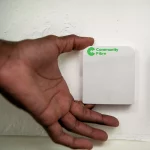Sponsored Links
BPI Calls on UK ISP's To Help Reduce Online Piracy
Posted: 29th Jan, 2008 By: MarkJ
The British Phonographic Industry (BPI) has once again added to the seemingly endless and largely one-way war of words with UK ISP's, calling on providers to implement procedures that would help reduce the "huge scale of music piracy" on their networks.
They claim that over a years worth of negotiations with UK ISP's has done little to improve the current situation, with providers continuing to resist the implementation of their "three-step procedure":
The proposed system would see customers receiving a notice from their ISP informing them if the account has been used to distribute music illegally, with further action (such as suspension or termination of the account) being taken only if the notice is ignored:
Meanwhile there is also the argument about whether or not it is even an ISPs responsibility to police the Internet, with most providers and organisations such as the UK Internet Service Providers Associating (ISPA) saying it isnt. The BPIs rant follows an almost identical outburst from the IFPI last week (here), which isn't surprising given the close nature of both organisations.
In related news, U2's manager Paul McGuinness eloquently suggests that networks operators have had their "snouts in the trough for too long" and should contribute towards musicians pay. We cant help but wonder whether any of these people have even the slightest clue about how the Internet works or what it costs to run an ISP.
Mercifully the European Court of Justice has just ruled that ISPs may only disclose the identity of a customer in criminal cases and not civil litigations, such as those so frequently used by lawyers chasing after file sharers. However, individual member states still have the power to issue laws that override the ruling and compel ISPs to reveal all.
They claim that over a years worth of negotiations with UK ISP's has done little to improve the current situation, with providers continuing to resist the implementation of their "three-step procedure":
BPI Chief Executive Geoff Taylor said: "For years access to free music has helped to drive ISPs' businesses while they have paid nothing to the creators of that music, and done nothing to help address rampant piracy on their networks. Their wilful blindness is causing tremendous harm to British music, and the music sector, with support from Government, is united in the conviction that the situation must change."
The proposed system would see customers receiving a notice from their ISP informing them if the account has been used to distribute music illegally, with further action (such as suspension or termination of the account) being taken only if the notice is ignored:
Taylor continues: "We have tried to persuade ISPs to implement solutions that could avoid the need to take action against broadband customers that use illegal P2P. For more than a year, we have been negotiating with them to implement reasonable procedures under which they would advise customers if their account is being used to distribute music illegally, and then, if the advice is ignored, enforce their own terms and conditions about abuse of the account. But UK ISPs refuse to do even that on any meaningful scale.
The music business wants to partner with ISPs to create new music services that would deliver even greater value for consumers, creators, and to ISPs. An internet that rewards creativity - while offering music lovers unprecedented choice and value for money - is in the long term interest of all of us.
The time has come for ISPs to stop dragging their feet and start showing some responsibility, by taking reasonable steps to counter illegal music freeloading. Their failure to do so until now is extraordinary - and it can't be allowed to go on."
On the surface such a system may appear to be quite feasible, yet potential conflicts with the Data Protection Act (DPA) and the inherent difficulty in monitoring huge networks and validating claims from the music industry could make it a technical, legal and costly nightmare.The music business wants to partner with ISPs to create new music services that would deliver even greater value for consumers, creators, and to ISPs. An internet that rewards creativity - while offering music lovers unprecedented choice and value for money - is in the long term interest of all of us.
The time has come for ISPs to stop dragging their feet and start showing some responsibility, by taking reasonable steps to counter illegal music freeloading. Their failure to do so until now is extraordinary - and it can't be allowed to go on."
Meanwhile there is also the argument about whether or not it is even an ISPs responsibility to police the Internet, with most providers and organisations such as the UK Internet Service Providers Associating (ISPA) saying it isnt. The BPIs rant follows an almost identical outburst from the IFPI last week (here), which isn't surprising given the close nature of both organisations.
In related news, U2's manager Paul McGuinness eloquently suggests that networks operators have had their "snouts in the trough for too long" and should contribute towards musicians pay. We cant help but wonder whether any of these people have even the slightest clue about how the Internet works or what it costs to run an ISP.
Mercifully the European Court of Justice has just ruled that ISPs may only disclose the identity of a customer in criminal cases and not civil litigations, such as those so frequently used by lawyers chasing after file sharers. However, individual member states still have the power to issue laws that override the ruling and compel ISPs to reveal all.
Search ISP News
Search ISP Listings
Search ISP Reviews
Latest UK ISP News








Cheap BIG ISPs for 100Mbps+
150,000+ Customers | View More ISPs
Cheapest ISPs for 100Mbps+
Modest Availability | View More ISPs
Latest UK ISP News
Helpful ISP Guides and Tips
Sponsored Links
The Top 15 Category Tags
- FTTP (6722)
- BT (3863)
- Politics (3036)
- Business (2736)
- Openreach (2629)
- Building Digital UK (2488)
- Mobile Broadband (2434)
- FTTC (2132)
- Statistics (2102)
- 4G (2062)
- Virgin Media (1997)
- Ofcom Regulation (1761)
- 5G (1692)
- Fibre Optic (1587)
- Wireless Internet (1581)
Sponsored
Copyright © 1999 to Present - ISPreview.co.uk - All Rights Reserved - Terms , Privacy and Cookie Policy , Links , Website Rules






























